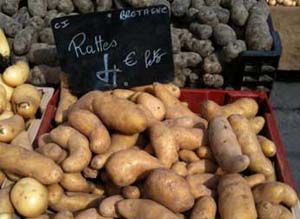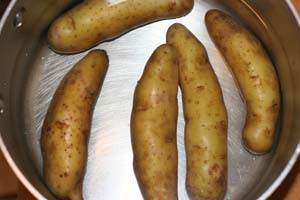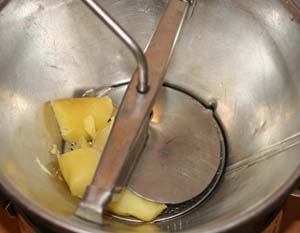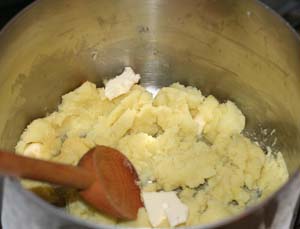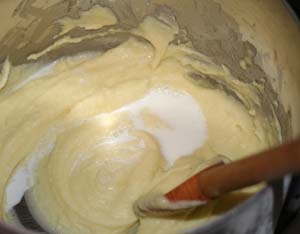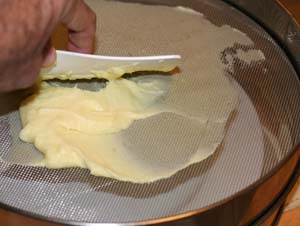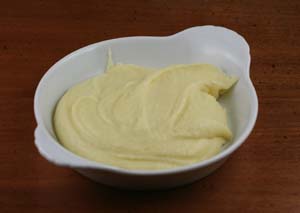How to make Robuchon style potatoes
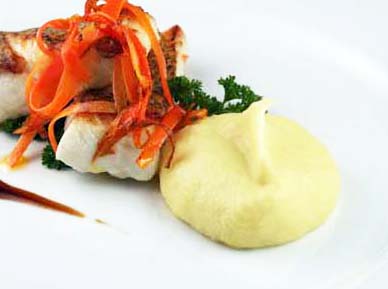
Joel Robuchon style potatoes are often said to be the best in the world by top chefs. Robuchon was one of the great chefs, a highly decorated French chef who was named ‘Chef of the Century’ by guide Gault Millau in 1989.
Robuchon potatoes are cooked in lightly salted water with skins on and then drained. the potatoes are then peeled and passed through a food mill .. dried out over a low flame and then emulsified with butter and milk. And, then to achieve that velvety texture, the potatoes are passed several times through a fine drum sieve.
Adapted from from L'Atelier of Joël Robuchon and Chef Steve Benjamin of L'Atelier de Joël Robuchon (MGM Grand) - Las Vegas, NV
